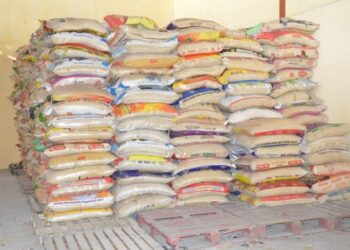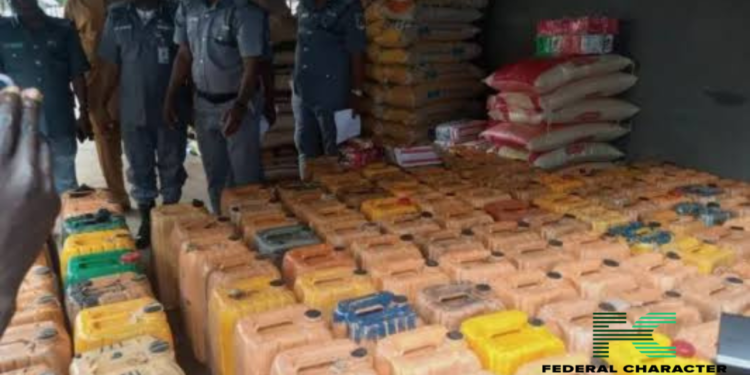The Nigeria Customs Service (NCS) has halted the sale of confiscated food items following a stampede at their Yaba office in Lagos last Friday. The incident, which claimed lives, has raised questions about the methods employed and the underlying economic realities.
Intended as Relief, Ends in Chaos:
Initially, the NCS aimed to provide relief by selling seized food items at a discounted price. This was intended to ease the burden of rising food costs and economic hardship faced by many Nigerians.
Concerns and Questions:
However, critics argue that the very need for such a program highlights the dire state of the nation’s economy, where basic necessities are becoming increasingly unaffordable. They question if the desperate scramble for discounted food reflects a wider societal problem rooted in poverty and hunger.

Smooth Start, Tragic Turn:
The NCS reported a smooth start to the program, prioritizing vulnerable groups like the elderly, disabled, and pregnant women. However, chaos erupted when the available stock ran out, leading to a stampede and unfortunate casualties.
Moving Forward:
The NCS expressed condolences to the victims’ families and vowed to investigate the incident. They have also suspended further sales, citing the need for a “more robust and comprehensive action” that upholds the program’s original purpose without putting lives at risk.
A Nation in Need:
The incident underscores the harsh realities of economic hardship in Nigeria, where basic necessities become luxuries for many. While the NCS’s intent to provide relief is commendable, the incident raises crucial questions about long-term solutions and the responsibility of various stakeholders to address the underlying issues.














